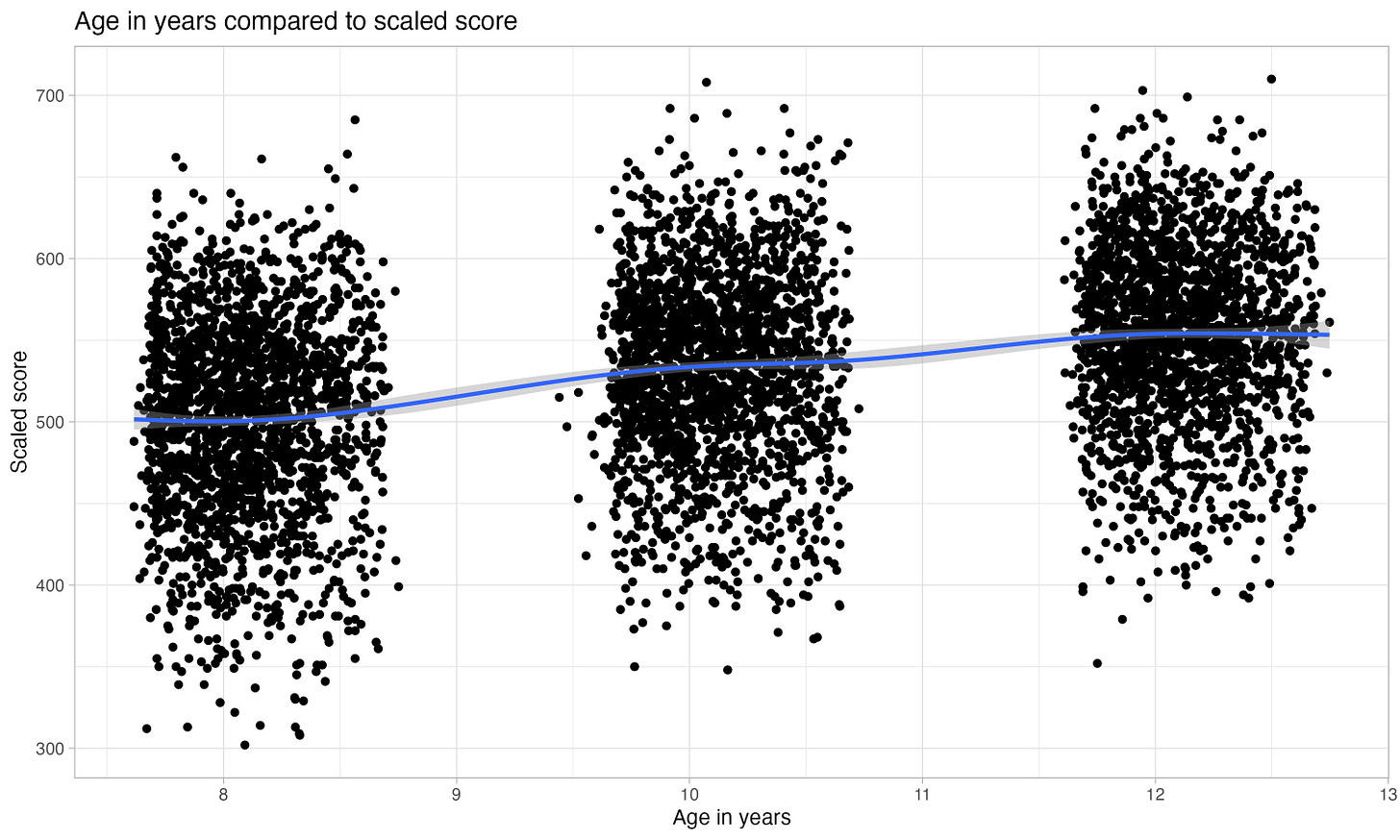In September this year teachers in Australia used Comparative Judgement to collectively assess the fiction writing of 7,465 primary school pupils. The task was a standardised image prompt, undertaken in examination conditions. We use overlapping samples, which allows us to compare results between year groups.
One aspect of the results that we found interesting is the relatively weak relationship between chronological age and writing ability. The figure below illustrates this relationship.
The blue trend line shows the average increase by age, a noticeably modest increase when compared to the spread within age group. While statistically significant, the r-squared value of 0.12 suggests only 12% of the variance between scaled scores is explained by age. In previous years, in England & Wales, we have found around 20% of the variance in scores of pupils between the age of 7.5 and 12.5 can be explained by age, but in the last academic year we did see a fall to just 12%.
What the findings suggest is that the range of writing ability within any year group compared to the difference between year groups is weak from the age of 7.5. The weak relationship could have interesting implications for teaching approaches in the different regions.
At present our findings in Australia are a limited snapshot of a single task, so we can’t rule out the explanation that some aspect of the task has affected the relationship. In England we have seen quite a dramatic increase in the spread of scores in the last academic year, which may or may not continue. It will be interesting to see the data build up over time, and to see if there genuinely is the same relationship between age and writing ability in Australia than there is in England & Wales.






So does this mean that the duration a child attends school doesn't have a significant impact? What could be more significant factors?